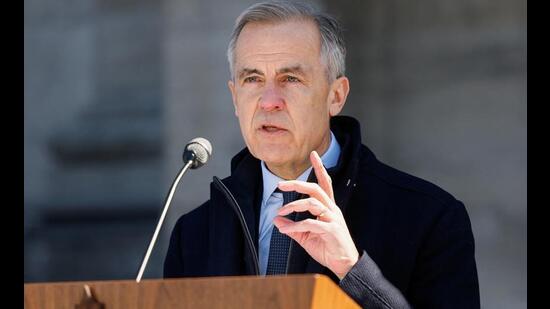
Canada is set for a high-stakes snap election on April 28, following Prime Minister Mark Carney’s formal request to dissolve the House of Commons. On Sunday morning, Carney met with Governor General Mary Simon in Ottawa, initiating the process to form a new government months ahead of the originally scheduled October 27 election.
Carney, who took office after Justin Trudeau’s departure, is now seeking a strong mandate to solidify his leadership. “I’m asking for a strong, positive mandate from my fellow Canadians,” Carney declared in a press conference outside Rideau Hall.
Why a Snap Election Now?
The unexpected call for an early election is seen as a strategic move by Carney, who hopes to capitalize on his recent policy shifts and growing public support. However, opposition parties have criticized the timing, accusing him of avoiding parliamentary scrutiny amid economic uncertainties.
Political analysts suggest the decision was influenced by multiple factors:
- Rising concerns over US-Canada relations, especially amid Donald Trump’s renewed threats to renegotiate trade agreements.
- The need to push through key economic reforms, including middle-class tax cuts and the elimination of the consumer carbon tax.
- A bid to secure stability before potential economic turbulence later in the year.
Carney’s Populist Shift
Trump Factor Looms Over the Election
A significant flashpoint in Carney’s campaign is his strong stance against US President Donald Trump. Addressing supporters, he accused Trump of attempting to undermine Canadian sovereignty, stating, “He wants to break us so America can own us—we will never allow that to happen.”
Carney’s remarks highlight growing tensions between Ottawa and Washington, with trade policies, defense agreements, and economic influence expected to be major election issues.
Opposition’s Response
Carney’s rivals, including Conservative leader Pierre Poilievre and New Democratic Party (NDP) leader Jagmeet Singh, have wasted no time in attacking the snap election call.
- Poilievre accused Carney of “political opportunism”, arguing that “Canadians deserve stability, not a rushed election.”
- Singh criticized Carney’s economic policies, warning that his tax cuts could favor the wealthy at the expense of social programs.
Meanwhile, early polling suggests a tight race, with Carney’s Liberal Party holding a slight edge over the Conservatives but facing strong opposition from both the right and left.
What’s Next?
With just five weeks until election day, Canada is set for an intense and fast-paced campaign. As leaders crisscross the country, key issues such as inflation, housing affordability, healthcare, and foreign relations will dominate the debate.
The outcome of this election will shape Canada’s political and economic landscape for years to come, making it one of the most crucial electoral battles in recent history.

